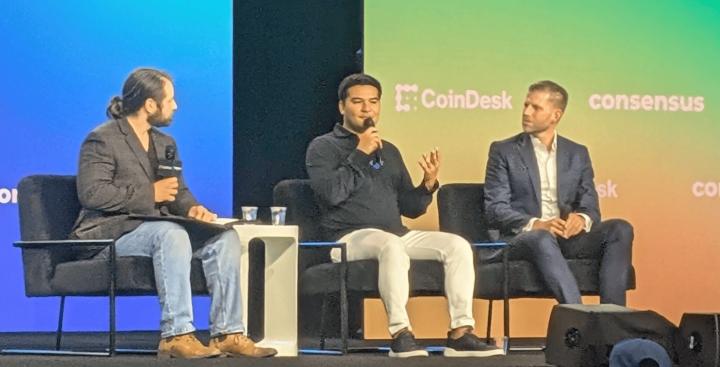For a long time, the American public has been flooded with news about the Trump family's pursuit of personal gain, to the point where many of their actions now barely cause a stir. Just this week, there are reports that the government is preparing to accept a luxurious Boeing 747-8 aircraft gifted by the Qatari royal family as the new "Air Force One" until Boeing completes a new one. The Department of Defense will receive the aircraft, but reportedly, when Trump leaves office, the plane will be donated to his presidential library, making this $400 million aircraft private property—despite this arrangement seemingly clearly violating foreign gift provisions that prohibit U.S. officials from accepting gifts from foreign leaders and governments. (Trump had attempted to alleviate ethical concerns by suggesting that refusing gifts would be "stupid".) However, in the cryptocurrency realm, opposition within Congress to Trump's business activities is continuously growing. Last week, some Democratic senators refused to pass a widely popular pro-cryptocurrency bill due to the president's blatant profit-seeking behavior. Wyoming Republican Senator Cynthia Lummis recently stated in an interview with The New York Times: "The negative impacts of such actions are obvious." Nevertheless, so far, the Trump family seems to have accurately bet on one fact: no one can truly stop them.
The New York Times: Uncovering the Trump family’s “encrypted revolving door”
This article is machine translated
Show original
Here is the English translation:
Suppose there exists an individual with immense political power who has created and publicly sold one billion lottery tickets. Participants purchasing these tickets will ultimately receive a certain proportion of "magic beans" as a reward, with each "magic bean" exchangeable for one US dollar. More critically, if tickets are purchased early, their price will be lower than one dollar, potentially as low as five cents per ticket. These tickets not only promise future traditional currency returns for holders but also grant voting rights on company affairs, allowing participation in managing the "magic beans" supply, with voting power increasing proportionally to the number of tickets purchased. It should be noted that the lottery initiator will reserve a batch of tickets for themselves, with most economic proceeds from the "magic beans" flowing into their hands.
The above description actually reflects the operational mechanism of a new cryptocurrency created by a company associated with the Trump family called "World Liberty Financial", with Donald Trump serving as the "Chief Crypto Advocate". This cryptocurrency is a governance token named WLFI, equivalent to lottery tickets, while another token called USD1 corresponds to "magic beans". World Liberty Financial operates in the emerging "decentralized finance" domain, where cryptocurrency tools enable users to bypass traditional, regulated banking ecosystems for fund transfer, storage, and lending. Stablecoins are cryptocurrencies pegged to a single currency's value, such as the US dollar, but not always stable, as demonstrated by the previously successful stablecoin Terra, which lost its peg and collapsed in 2022. As long as stablecoins are not classified as securities, their legal status remains ambiguous.
World Liberty Financial stated: "World Liberty Financial does not consider these tokens to be securities." In January 2023, Trump and his son quietly acquired controlling rights to World Liberty Financial through a company called DT Marks DeFi. Although disclosures indicate Trump family members are not "executives, directors, or employees", DT Marks DeFi receives 75% of the subsidiary's net income. (The remaining 25% belongs to Axiom Management Group, associated with World Liberty Financial's two official leaders Chase Herro and Zachary Folkman, with Folkman notably running a company called "Date Hotter Girls".)
Trump was previously a cryptocurrency skeptic, explicitly stating in a 2019 tweet: "I do not like Bitcoin." However, in recent years, he has begun extensively promoting various "magic beans" projects, injecting a public relations boost into an industry where new enterprises often fail quickly. In 2022, he launched Trump digital trading cards, a series of Non-Fungible Tokens (NFT) continuously releasing new batches, including a January 2024 "mugshot" version featuring his photo glaring at police. (Bulk NFT "mugshot" buyers received invitations to Mar-a-Lago.)
[Translation continues in the same manner, maintaining the specified name translations and preserving the original structure]

Source
Disclaimer: The content above is only the author's opinion which does not represent any position of Followin, and is not intended as, and shall not be understood or construed as, investment advice from Followin.
Like
Add to Favorites
Comments
Share
Relevant content





